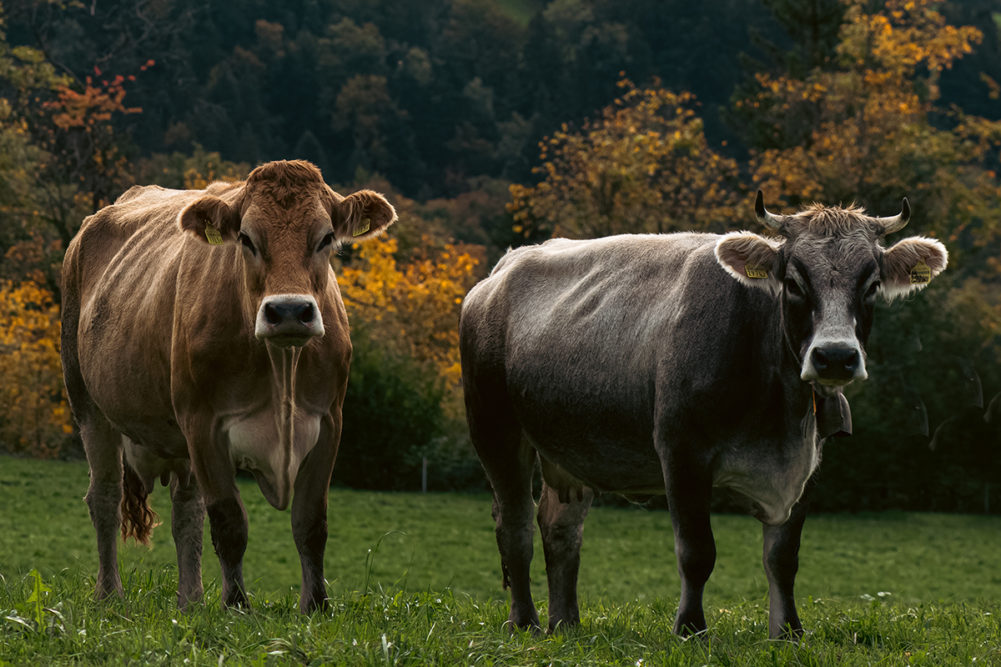Sustainability has been top of mind for many consumers, brands and retailers alike for the last several years. Companies are being challenged to provide details on how their efforts support the environment.
A growing number of consumers are holding retailers responsible by voting with their dollars for what choices they offer shoppers, especially in the meat case. A report from Kearney found that “environmental impact” is valued almost twice as much in the grocery channel than in restaurants.
Twenty-seven percent of respondents indicated “environmental issues” were a significant influence on their specific food choices, compared to 15 percent in restaurants.1
Further, Power of Meat 2023 found that “shoppers who emphasize planet, people and animals tend to align their values with those of the store and the brands they purchase.”2
Consumer demand for beef continues to be strong, even in inflationary times. According to the Beef Checkoff, almost two-thirds of consumers say they plan on eating at least the same amount of beef that they currently do in the coming months ahead.3
However, a growing segment of consumers is concerned about the impact of beef production relative to other animal protein on the environment. The Kearney study found that in the last five years, Google searches about the carbon footprint of beef have increased by 18%.1 Furthermore, the report states than a quarter of consumers think about the environmental impact of food while at the grocery store.1 These consumers are increasingly aware of environmental claims (or lack thereof) about products they consume and are searching for brands and products that align with their desire to minimize impact on the climate.
Now, that doesn’t mean consumers want to give up meat. According to Kearney, 32% of those who were somewhat aware of the “sustainability aspect of food” and 20% of those who were very aware, don’t want to adopt a vegetarian or vegan diet.1
This provides retailers an opportunity to satisfy shoppers with beef brands that are addressing consumers’ concerns.
Retailers can differentiate themselves and meet select consumers’ demands by carrying brands with programs focused on industry practice improvement, such as adoption of regenerative agricultural practices, reduced greenhouse gas emissions or animal welfare standards. For example, Tyson Foods’ newest launch into the marketplace, Brazen™ Beef, is the first beef brand that has received USDA approval for a climate friendly* beef claim on label by demonstrating a 10% greenhouse gas reduction from pasture to production as compared to conventional cattle.
Sustainability and animal welfare
For many consumers, animal welfare and sustainability go hand-in-hand. Power of Meat 2023 reported 85% of consumers will take into consideration at least one of the four areas of health, animal welfare, planet or social responsibility when buying meat/poultry.2
Beef brands that can demonstrate that they’re taking a proactive approach to animal welfare, such as through third-party audits, cattle performance monitoring or certifications, will have more success with select consumers.
Packaging is another opportunity to connect with consumer values. Selecting products with plant-based fiber packaging or packaging that is designed to be recyclable is a great way to show commitment to practices beyond the beef product itself. Showcasing a full brand story from pasture to production, and through packaging and merchandising helps consumers see the value provided in a premium program.
We leveraged these insights in the design of Brazen Beef because of the value they offer to retailers and consumers. Cattle used for the Brazen brand are raised by producers enrolled in programs that adhere to specific animal welfare practices, including, for example, BeefCARE™ , an animal welfare and regenerative agriculture verification program administered at the producer level. Cattle are also handled at Tyson facilities in accordance with Tyson Foods’ Animal Welfare CARE**
In-store point-of-sale materials for Brazen products are designed to be recyclable.
To really get consumers on board, retailers must also show action behind their commitments beyond stocking products. They can highlight their own efforts to shoppers by setting science-based targets and selecting product offerings that result in reduced emissions. Minimizing waste, by supporting food bank donations or offering compostable and reusable produce and meat bags options, is another key area of focus.
Retailers can satisfy current customers and even reach new shoppers by highlighting products taking steps and communicating these practices. For more information on Brazen Beef, visit brazenmeats.com/retailwaitlist.
Britney Banuelos is senior brand manager for Tyson Foods, Inc.
* Cattle used for Brazen Beef products are enrolled in Tyson Foods’ Climate-Smart Beef Program for emission reduction from pasture to production. | www.BrazenMeats.com
** Tyson Foods, Inc. Animal Welfare CARE Program BeefCARE is a trademark of Where Foods Comes From, Inc.
1. Consumer awareness of food’s environmental impact is slowly growing, Food Dive // Dawn of the Climavores, Kearney; April 2022
2. Anne-Marie Roerink, Principal, 210 Analytics LLC, The Power of Meat 2023, Report sponsored by Sealed Air Food Care Division/Cryovac® and Published by FMI and the Foundation for Meat & Poultry Research & Education
3. Beef Industry Review and Consumer Insights: February 2023 Edition, National Cattlemen’s Beef Association

